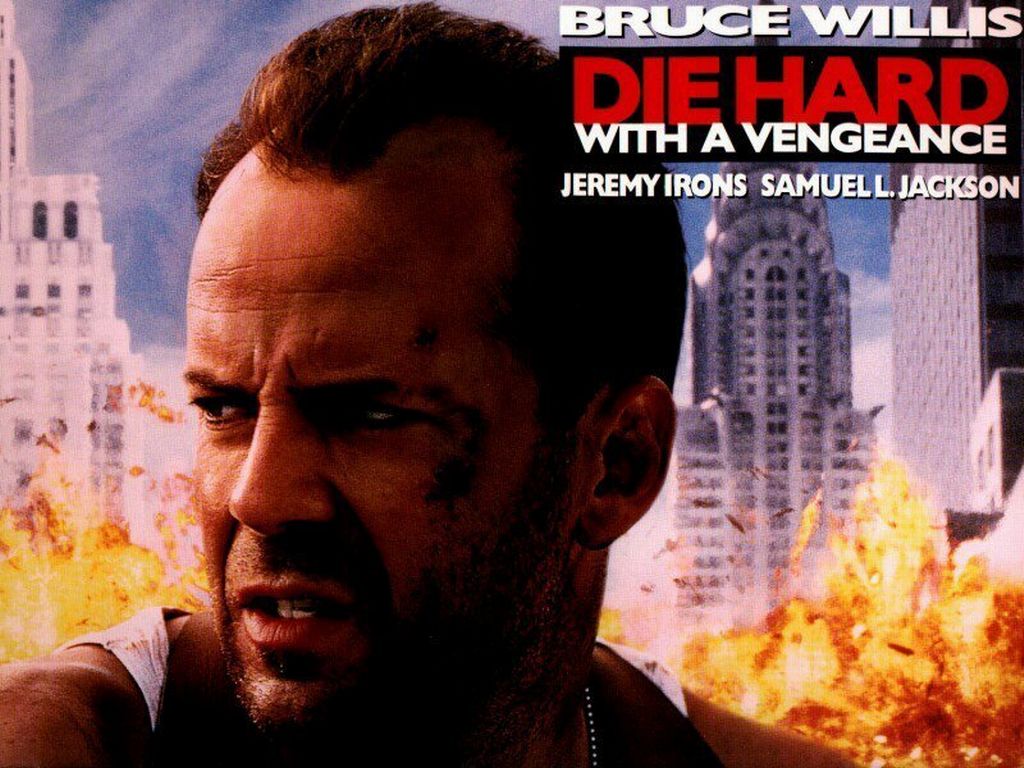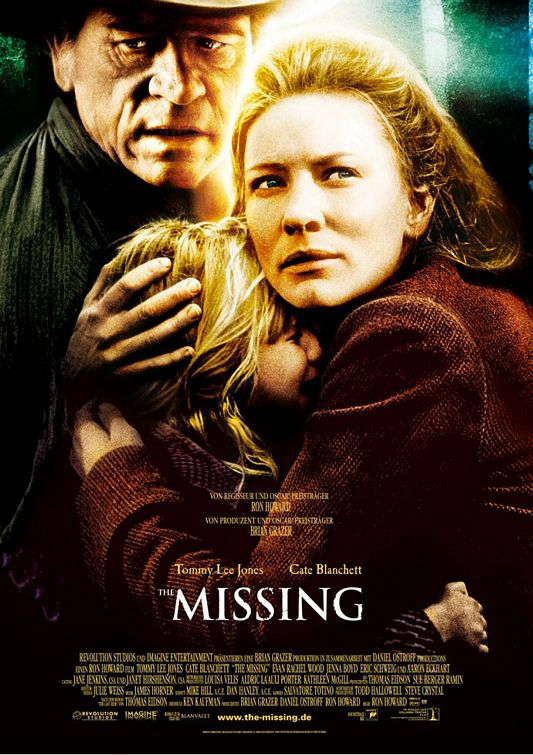 Die Hard with a Vengeance – Is a lot better than Die Hard 2. I imagine this is a popular opinion, but I am honestly not sure; I believe the second film was actually better received, somehow. The original director of Die Hard signed onto this project, and the presentation hints more at a direct sequel to the first film. Really, just watching it again for the first time in a decade, I realize that Die Hard with a Vengeance contains exactly zero references to the second film at all. This immediately elevates the film in my mind.
Die Hard with a Vengeance – Is a lot better than Die Hard 2. I imagine this is a popular opinion, but I am honestly not sure; I believe the second film was actually better received, somehow. The original director of Die Hard signed onto this project, and the presentation hints more at a direct sequel to the first film. Really, just watching it again for the first time in a decade, I realize that Die Hard with a Vengeance contains exactly zero references to the second film at all. This immediately elevates the film in my mind.
Why is it better, for actual reasons this time? For starters, even though police officers and people surround John McClane this time, they find a subtle plot construction that forces him into relative isolation. He must prevent bombs from exploding around New York due to a mysterious man named Simon with a German accent looking for revenge for…well, who do you think? If you’ve seen the original film, his identity becomes incredibly obvious within a few minutes, but seeing the way in which the screenplay leads you there remains a delight nearly two decades later. Jeremy Irons knocks it out of the park, as always, and his performance (on a phone, no less) totally establishes a great megalomanical personality without even being seen for close to an hour. That’s some good writing, and some good acting.
Second, to add to its great qualities, the first half of the film barely contains any action, similar to how the first film’s first half (that’s a moutful) also barely contains any action. We need to understand the situation and what’s actually happening first, and the long set up reacquaints us with our protagonists, allows the personalities on display to clash (especially Samuel L. Jackson’s Zeus, whose presence and ability to wrap his fantastic voice around curse words gets put to good use here), and provide some hilarious laughs. Die Hard functions as an action-comedy, and we need to set the stakes in order for any personal investment.
So does the film fall apart after a strong first half? Well, yes and no. It amounts to a retelling of the first with higher stakes, and while the convoluted scheme happening here sounds great on paper (and once in execution), the ending sorta falls flat. Apparently, the original filmed ending makes John McClane much more dark and sinister, but the current ending is hilariously insane in all the wrong ways. It just sorta ends, and you can tell that something was cut, or that a rush editing job destroyed the pacing at the end. This is already a film cresting over two hours, so you wonder what actually happened here.
So should any of this dissuade you from watching it? If you liked the original, I can’t see why this one wouldn’t work. As a sequel, it’s a pretty darn good one, and a movie like Die Hard is hard (har har) to surpass. In any event, I like it better than “Dumb Elaborate Airport Plot” versus “Distraction Heist”.
The Missing – Apparently, Ron Howard made this rather rout Western-action film with themes of family, forgiveness, and independent women replacing men in the traditional Western hero mold. It works more often than not as a bit of a crowd-pleaser, some light fluff to go along with your “women kidnapped for prostitution” plot, PG-13 style. That part is just weird.
What’s even stranger, and this part set off the synapses in my brain immediately, is the way that the film deals with the subject of religion. So Cate Blanchett’s a Christian women, and her father (TLJ) a convert to Native American ways of life. Rather than display both in an evenhanded, secularist manner which you’d expect, The Missing goes whole hog with mysticism. They call the main villain a “witch”, and he (this is not a gender exclusive designation, and warlock wasn’t on the vocabulary menu) puts curses on people that actually work. Furthermore, Tommy Lee Jones often uses the spirits to guide his way to his kidnapped granddaughter, or to escape certain death in the desert.
On the other hand, our Christian female protagonist utters ineffectual prayers and generally looks like an intolerant idiot throughout the film. Christian ideas and beliefs just don’t work out in the wild and the film make a point to highlight this. So why, exactly, should we make the Native American traditions manifest as efficacious practices, but not the Christian ones? Frankly, I do not understand the decisions here. Not only do they swoop in without warning, but it isn’t established prior in any way that magical spirit rituals will work – lo and behold, they just do for some reason.
Honestly, the Christian element doesn’t bother me (because, let’s face it, I don’t expect a major Hollywood production to so much as hint at the validity of Christian traditions) as much as the “magic happened” plot point. Like many J.J. Abrams creations, the rules of how the “magic” works remain completely inconsistent. Why can he curse this person? How come this magic powder can kill someone, but this curse can’t? Why do these chants prevent this disease, and why does Bible reading not work? For a seemingly straightforward Western, the relative power/non-power of spiritual forces seems completely undefined and out of whack.
Other than that huge problem, the plot goes the expected places, and actors like Blanchett and Jones elevate the material beyond its rather predictable story beats. If anything, the film’s just far too long, and focuses on far too many unrelated matters. Maybe if they spent less time not establishing how the unseen forces in their constructed universe worked, then maybe the film would transcend its origins as a B-movie with great acting alone. Alas, I’m not sure whether to even recommend this or not. If you like Westerns, sure, but it doesn’t do anything particularly memorable or interesting. If I’m gonna watch a long Western, I’ll go with Sergio Leone, thank you very much.

